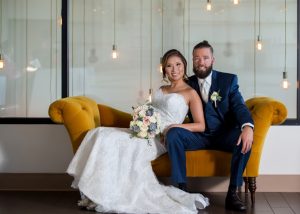I feel like I’m in the middle of a battle, a silent battle, unable to freely admit that my marriage is hard. For fear of judgment from others, for fear of facing reality, for fear of how my partner might be perceived. Yet, the truth is, it’s been tough. I have a 5-year-old and a 2-year-old, and having relocated away from my family and friends, adapting to a new environment has been quite an adjustment. Despite seeking support from a marriage therapist, I struggle to express my emotions and thoughts freely, even to someone I trust deeply.

I’ve been with my partner for 16 years, married for 9. It’s been a transition for me— navigating the complexities of sharing space, finances, and parenting has taken its toll on our marriage. It gets hard to find time to communicate with your partner, especially during the years of survival, to show kindness, affection, to share words of affirmation, to go on dates, and to TALK. I’ve noticed communication about the kids and schedules is on point, but intimate communication between two parents about each other is nonexistent. Then continues the resentment due to unmet needs and it feels like two people just living in a house.

I frequently experience moments of “mom guilt,” wondering if I’m setting the right example for my boys’ future relationships. This inner dialogue often leads me to question whether my marriage is truly right for me or if I’ve made a mistake. It’s a challenging journey filled with self-doubt and uncertainty. I didn’t come from a family where communication was prioritized. As a Korean American, while the language barrier with my parents isn’t significant, it still hinders deep conversations about feelings. It’s not the cultural norm to do so. Translating that communication barrier into my marriage causes issues, especially when I just shut down emotionally. Can anyone relate to these thoughts and feelings?

Finding solutions isn’t straightforward, and I don’t claim to have all the answers. What I do know is that having a marriage therapist can improve communication, but the real work extends beyond the therapy session. It requires consistent effort to show up for your partner every day, to communicate openly and with kindness. By prioritizing proactive communication, understanding each other’s love languages, and setting mutual goals for marriage, I believe we can overcome our challenges. While I’m still navigating this journey and can’t predict the outcome, I’m committed to doing my best for myself, my partner, and our family. Despite the uncertainties, I maintain hope and encourage open dialogue about marital issues without fear.
Let’s create a supportive community where parents, mothers like me, can share experiences and seek guidance beyond traditional therapy. We’re all in this together, ready to support whoever needs it.











